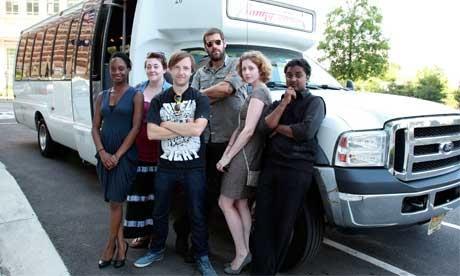In
2011, the BBC went on a mission: to take a minibus load of 9/11
conspiracy theorists on a trip across America in the hopes of convincing
members of the troupe with scientific evidence and expert testimony
that the terrorist attack was not an "inside job."
 |
| The BBC's 9/11 Conspiracy Road Trip |
However, about three days into filming, something started to happen: Charlie began to change his mind, the only member of the group to do so.
Veitch's story has drawn the interest of skeptics and debunkers who are keen to understand how the he transformed from ardent "truther," to having, with humility, accepted the facts and testimonies he heard during his nine-day ride across America.
“I found my personal truth and you don’t have to agree with me,” Veitch told Maxwell during filming, “but I can’t push propaganda for ideas I no longer believe ... So, I just basically have to take it on the chin and admit I was wrong, be humble about it and just carry on.”
Veitch has since faced a backlash from the very people and community he once identified with and even counted as friends. In a recent interview with Myles Powers, he talked about what led him to change to his mind during filming, as well as how conspiracy theorists reacted to losing one of their more vocal advocates.
“[W]hat I thought when I was in New York on this BBC trip was that to me, the truth was the most important thing. Hence, the “truth” movement, but oh how wrong I was,” says Veitch.


